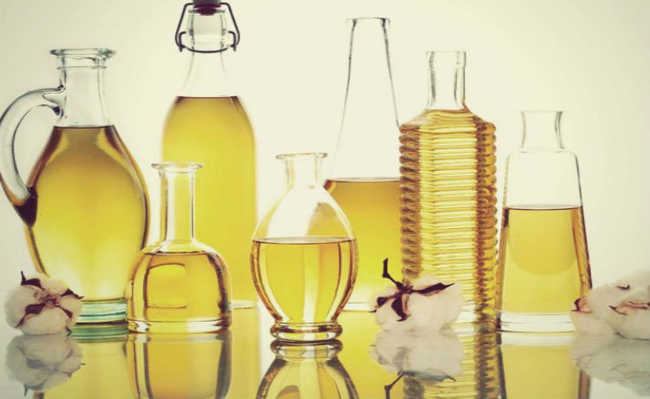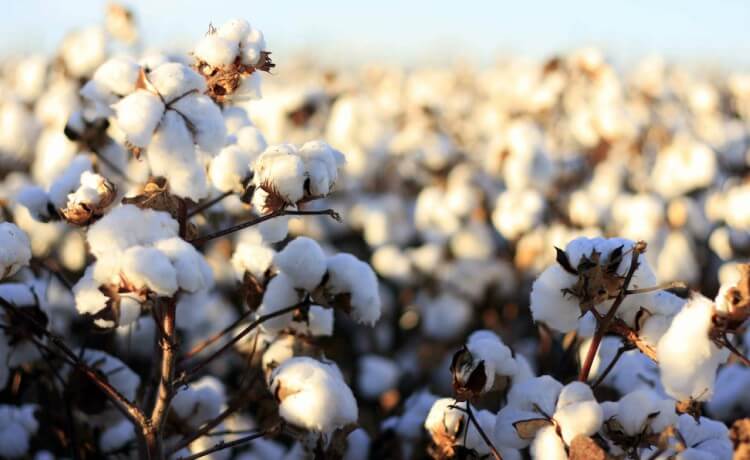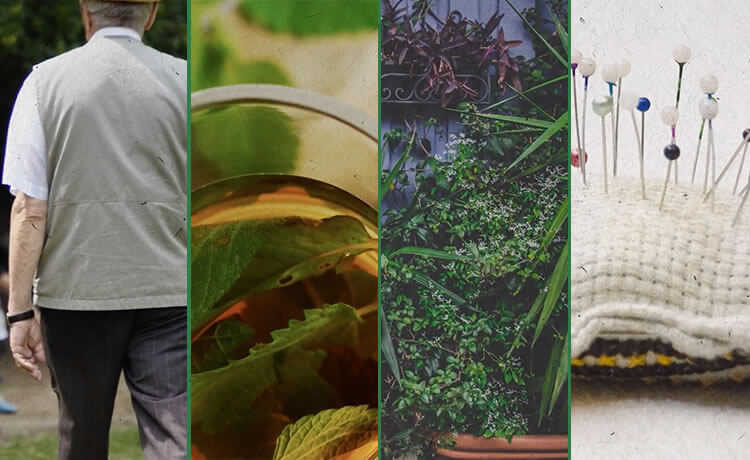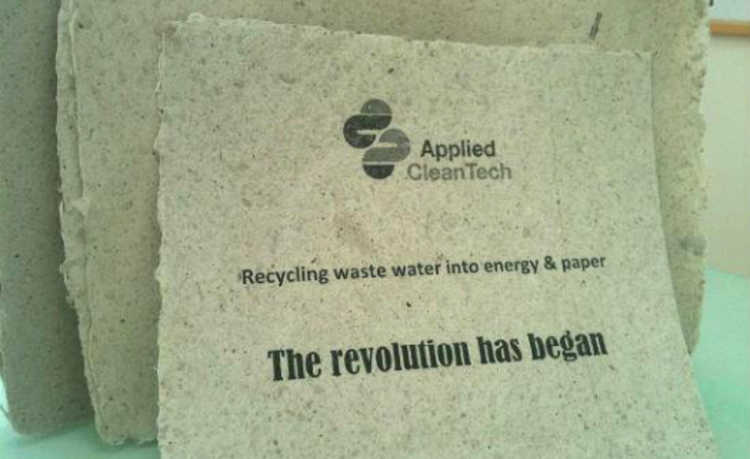Vegetable oils: know the benefits and cosmetic properties
Understand the various benefits, ways to obtain and best way to use these powerful natural allies of beauty

"Cottonseed Oil" (CC BY 2.0) by cottonseedoil
Vegetable oils are in many recipes and tips for a healthier and more sustainable life. But do you know what they are?
Vegetable oils are fats extracted from plants. Although other parts, such as roots, branches and leaves, can be used to obtain the oil, the extraction takes place almost exclusively from the seeds. Oils are formed by triglycerols (which is the union of three fatty acids to a glycerol molecule) and, because the chemical nature of vegetable oils is chemically nonpolar, they are insoluble in water and soluble in organic solvents.
Several sources can serve as raw material for the extraction of vegetable oils. In the links below you can check the most common vegetable oils, their medicinal and cosmetic benefits and properties:
- Olive oil
- Avocado Oil
- Sweet almond oil
- Andiroba Oil
- Rice Oil
- Buriti Oil
- Green Coffee Oil
- Brazil Nut Oil
- Chia oil: what is it for and benefits
- Babassu coconut oil
- Copaiba oil: what is it for and benefits
- Wheat Germ Oil
- Licuri Oil
- Macadamia Oil
- Macaúba Oil
- Castor Castor Oil
- neem oil
- Ojon Oil
- Palm oil
- Palm kernel oil
- Peach Oil
- Rosehip Oil Has Proven Benefits
- Pumpkin Seed Oil
- Grape seed oil: benefits and how to use
See how to buy vegetable oils safely and with quality.
Methods of obtaining
On an industrial scale, there are two methods for obtaining vegetable oils: pressing and solvent extraction, or also, in some cases, a combination of them.
Solvent Extraction
What defines the method are the cost and the initial oil content contained in the raw material used. Solvent extraction is indicated for those with low moisture and low oil content, providing an excellent yield (up to 99.92%), which also makes it more economically viable, at least currently.
As a solvent, hexane is normally used, a petroleum distillate which, as it is a non-polar organic compound, has greater chemical affinity with the non-polar section of the oil; just what makes it a solvent. Thus, vegetable oils migrate from the plant to hexane due to its solubility characteristic. However, in addition to having a high cost, this type of solvent can cause a lot of damage to people and the environment; since, even with a very high yield (99.92%) - obtained with some raw materials, such as soy - about one liter of hexane is released into the environment for each ton of processed product.
Furthermore, the percentage of efficiency achieved will depend on the operating conditions, physical state of the equipment and level of control. Common sense makes us believe that smaller companies obtain much more modest income, that is, more pollutants launched incorrectly. Here are some of the harms caused by this substance:
Hazards of Hexane
- Gradual accumulation in animal organisms;
- Pollution of water and atmosphere, since hexane gases have relative volatility, that is, they evaporate easily, diffusing into the air;
- Highly flammable, it can explode with any heat source in a temperature range from -22°C to 240°C;
- Toxic: it can cause irritation to the skin, eyes and gastrointestinal mucosa and, if the exposure is too great, it can even cause cardiorespiratory arrest;
- Coming from a non-renewable source, as it is a petroleum derivative;
- It can cause genetic problems;
- Can cause cancer;
- Suspected of damaging fertility or fetus;
- May be lethal if swallowed or inhaled.
- Refining: uses caustic soda (NaOH) and eliminates all beneficial substances in oils, such as caranatural antioxidants and tocopherol (vitamin E);
- Bleaching: makes the oil lighter by removing all the pigments present;
- Deodorization: promotes the removal of characteristic odors, softening them.
With all these arguments, the solvent method is certainly not the most sustainable method for extracting vegetable oils.
pressing
On the other hand, pressing presents better performance in cases where the raw materials have a high oil content, since, in this process, the oil extraction yield is lower than in solvent extraction. Thus, the less oil there is in the raw material, the lower the extraction yield by pressing will be. This may seem like a disadvantage, but on the other hand, the oils obtained allow direct use without refining. It should be noted that the quality of the product obtained by this method is much higher than the other, in addition to the fact that it is more sustainable, since solvent extraction has many negative aspects already mentioned.
The material is subjected to pressure crushing by a press and may be followed by heating or not; this step is determined according to the type of vegetable. Heating facilitates the flow of oils through plant cells, but it can lead to the loss of some important properties, due to the sensitivity to heat that some compounds have. Therefore, cold pressing is the most suitable method to obtain these oils, as it is the most natural way and without prejudice to the quality of the product obtained. In this mechanism, some raw materials, such as olive or palm, give excellent results, as the extraction is carried out by the fruits of the vegetable.
Benefits and Applications
Vegetable oils can be used to massage, moisturize the body, hair, face, among other purposes. When used in their 100% pure form, and especially if they are obtained by cold pressing, they present an immense advantage over the most common synthetic active principles marketed by the industry - which include aggressive chemical components in their formulations; among them the parabens. To understand more about this topic, check out the article: "Get to know the main substances that should be avoided in cosmetics and hygiene products".
Vegetable oils can provide numerous benefits and, among the most relevant aspects, we can mention:- It greatly reduces the chances of developing allergies and irritations;
- They have several benefits related to skin and hair nutrition, as they can carry fat-soluble vitamins, such as: A, D, E and K;
- They help in hydration as they are humectants, emollients and lubricants, giving a smooth, malleable and healthy appearance to the skin and hair;
- They work to prevent injuries;
- They participate in the different stages of skin healing;
- May exert bactericidal action;
- They increase the permeability of the membrane in cells, promoting their proliferation;
- They are sources of essential fatty acids, which are not produced by our bodies.
- They do not clog pores as long as they are pure, as they are absorbed, do not accumulate, and do not leave an excessively oily or heavy appearance when used in correct doses and disposal.
As such, they are capable of providing true nutrition for skin and hair, such as vegetable body butters, and are an excellent alternative to mineral or animal derivatives.
Vegetable oil vs. mineral oil: what are the differences?
Briefly, mineral oils are liquids composed of a mixture of petroleum-derived hydrocarbons, which can contain impurities that are very harmful to health, including polycyclic aromatics that cause cancer and tumors. Many used in cosmetics, also known as liquid paraffin or liquid petroleum jelly, do not really hydrate or nourish the skin and hair, but form a layer that prevents the loss of water that already exists in the body, and this can often clog pores, preventing let the skin breathe. To understand more about this topic, check out the articles: "What is petrolatum?" and "Can moisturizing the skin be dangerous?".
Vegetable oil vs. essential oil: what are the differences?
Essential oils are also obtained from plants, mainly from leaves and flowers. However, there is a marked difference between essential oils and vegetable oils. Essential oil is much more liquid, as it is a concentrate of volatile aromatic substances obtained from steam distillation.
The main characteristic of essential oils is the striking aroma they have, being widely used for therapeutic purposes. Essential oils evaporate easily, which provides the aromatization of the environment. Unlike vegetable oils, which do not have such a strong fragrance and do not evaporate under environmental conditions. So, if you want that fragrant environment, bet on essential oils!
Essential oils have complex mixtures and several dozen or even a few hundred substances with varying chemical composition. During the distillation process, there is chemical variation in the composition of volatiles, and the smaller this variation, the more faithful aroma of the oil will be in relation to the plant that originated it. Therefore, the chemical composition of an essential oil is not necessarily the same as the material stored in plants. To learn more about essential oils check out the article: "What are essential oils?".
Only a few essential oils can be ingested (in very small amounts). And due to its high concentration, it is necessary to dilute it in some vegetable oil or cereal alcohol before applying it to the skin, as it can cause irritation, unlike vegetable oils, which are quickly absorbed. Diluted essential oils are very successful when used in massage, as the aroma released causes feelings of comfort, relaxation and well-being. Some essential oils are even used as an alternative treatment.
- Aromatherapy is a natural remedy for rhinitis. Understand
- Aromatherapy is a natural treatment for sinusitis. Understand
Scratchs
Health
Usually, cosmetic industries add some aggressive chemical components in cosmetic products, such as low cost ones, to increase performance, and those that have antimicrobial or other specific activity that can prolong their lifespan.
However, these components are extremely harmful to health, such as parabens - which are used as preservatives and also for their antimicrobial action. They are commonly found in body oils and moisturizing lotions and can interfere with the endocrine system, in addition to causing allergies and premature aging of the skin. So you are not taking care of your body, you are harming it.
discard
Improper disposal of oils causes serious environmental impacts. Although they are biodegradable, the degradation conditions of these products are extremely important, as they reflect the time required for this decomposition to occur. If the load of these products released into the receiving body is above its capacity, this degradation will certainly be more difficult. For example, in water, they can be contaminants (each liter of oil contaminates 20 thousand liters of water); in the soil, they cause waterproofing that prevent water infiltration, causing floods, death of flora and fauna, among other problems.
Therefore, the disposal of vegetable oils in drains and sinks is inadequate, as it can cause several environmental risks and also clog the pipes. Inform yourself and always try to dispose of your waste properly. Here on the eCycle Portal there are several tips on how to reuse and give the correct destination to these and many other products. Check the eCycle Portal for the collection points closest to your home. The way we relate to our waste and the destination we give it is reflected in the environment!
Care when purchasing
To enjoy all the desired properties in these products, you need to follow some tips:
- Always look for 100% natural and pure oils;
- Prefer those obtained by cold pressing, which preserves the integrity of the beneficial components;
- Pay attention to the labels to make sure that other substances that are harmful to health and the environment are not included;
If the labels aren't clear, question it! There are currently several ways to communicate with manufacturers and bill them. Thus, the search for healthier and more sustainable products on a large scale exerts pressure on large industries, which need to reassess and change the way things are done, seeking safer methods for the environment and for people.
You can buy your pure vegetable oil at the eCycle Store.










